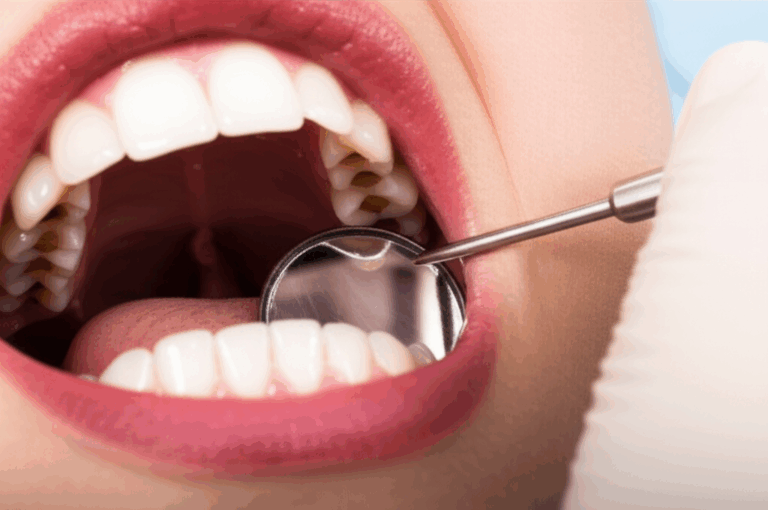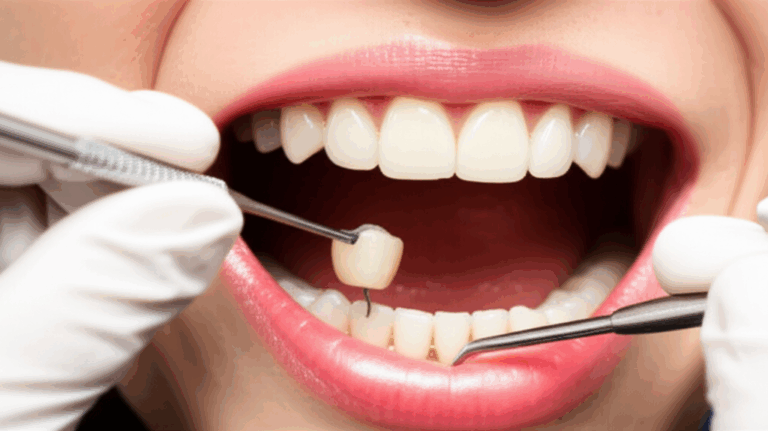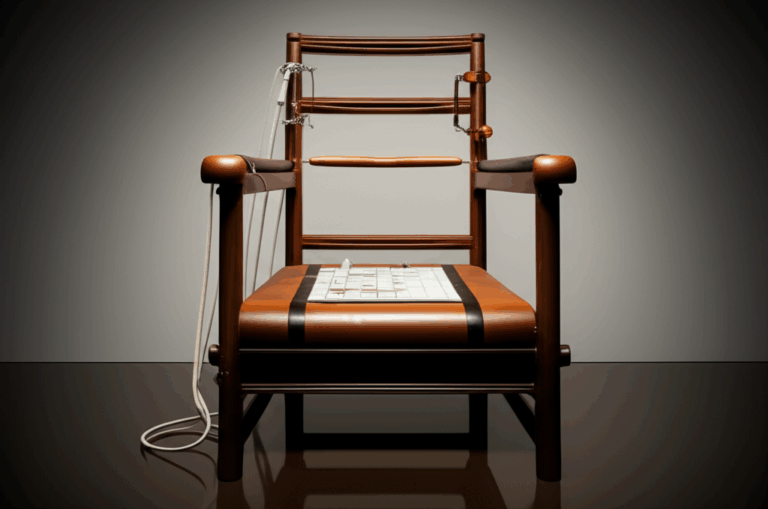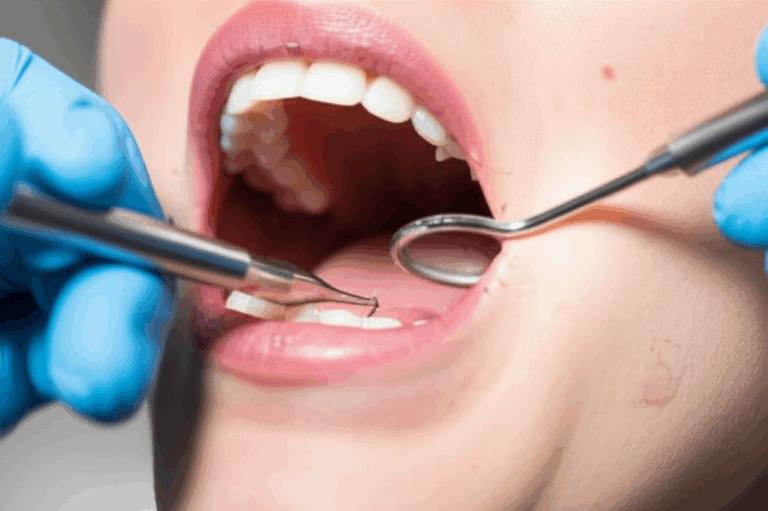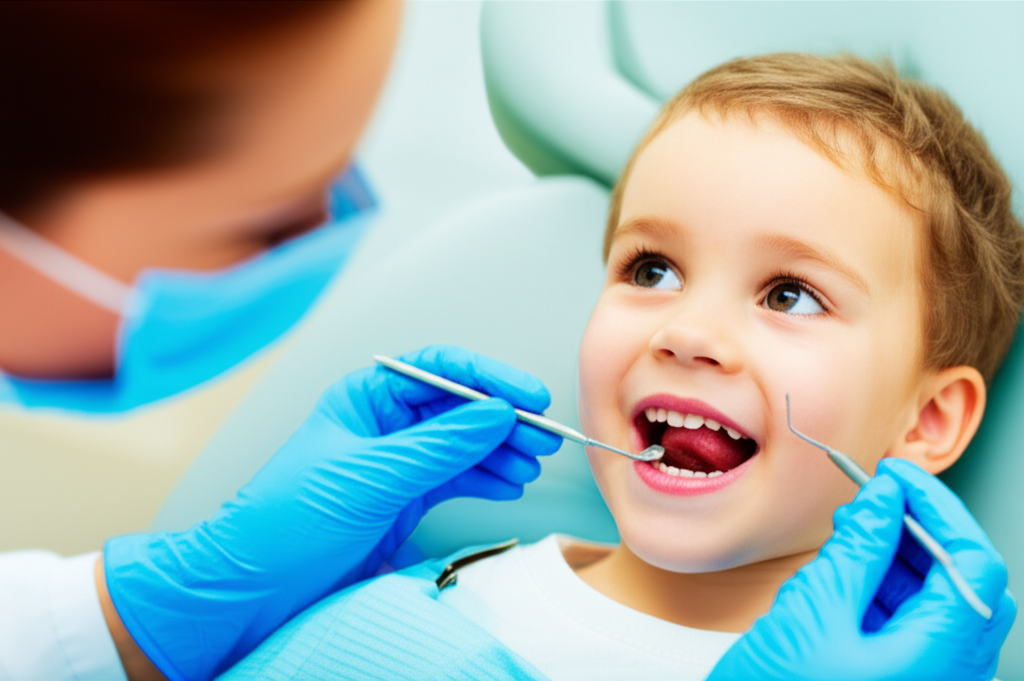
When Should Your Child Have Their First Dentist Appointment? The Ultimate Guide for Parents
Starting your child on the right path to healthy teeth begins much earlier than most parents think. Wondering when your baby’s first visit to the dentist should be? This guide gives you simple, clear answers. I’ll show you what age experts suggest, why it’s so important, how to get ready, what happens at that first visit, and lots of tips to make the whole thing easy and stress-free—for you and your child. Keep reading and you’ll see why getting this step right helps keep your kid safe from cavities and dental problems later. Don’t skip this, because a little care now can mean a lifetime of healthy smiles.
Table of Contents
- Why Is Early Dental Care So Important?
- When Should My Child See the Dentist For the First Time?
- How Do You Know It’s Time for the Dentist?
- What Happens During a Baby’s First Dental Visit?
- How Can Parents Prepare for the First Dentist Appointment?
- Why Do Baby Teeth Matter, Anyway?
- What Are Common Problems for Young Kids’ Teeth?
- How Often Should Kids Visit the Dentist After the First Visit?
- What If My Child Is Scared or Won’t Cooperate?
- How Can I Choose the Right Pediatric Dentist?
- FAQs: Quick Answers for Busy Parents
- Key Points to Remember
Why Is Early Dental Care So Important?
Let me tell you a story. When I took my niece to her first dentist visit, I thought it would be simple. But I was shocked to hear that almost 1 out of 5 kids have tooth decay before Kindergarten! The dentist said early dental care is super important, not just to stop pain, but to build good habits that last a lifetime.
Here’s the Problem: Early tooth decay—also called Early Childhood Caries (ECC)—can start as soon as the first tooth comes in. Studies show that by the time many kids go to the dentist, they already have cavities.
To make it clear, cavities in baby teeth might sound like no big deal, but if they aren’t fixed, they can lead to infections, trouble eating, speech problems, and pain. And if a cavity gets really bad, your child might even lose a tooth. That’s scary for parents and hard on little ones, too.
Solution? Book that first checkup early—before problems start. This way, parents get taught how to clean those new teeth, look for warning signs, and get tips about feeding and thumb sucking. Plus, kids who see the dentist early usually feel more calm and less scared next time.
When Should My Child See the Dentist For the First Time?
The Golden Rule: “First Tooth, First Visit, First Birthday.” That’s the easy answer, given by the American Academy of Pediatric Dentistry (AAPD) and the American Dental Association (ADA).
What does this mean?
- If your baby gets a tooth at six months, set up a dentist appointment soon after.
- If no teeth by the first birthday, go anyway for a checkup.
Why this timing?
- Tooth decay doesn’t wait. As soon as there’s a tooth, cavities can happen.
- Early visits let dentists spot other mouth problems, too—not just teeth.
Look at the table below for a quick overview:
| Milestone | Pro Advice |
|---|---|
| First Tooth Shows Up | Book dental visit within 6 months |
| First Birthday (even if no teeth) | Book dental checkup |
| Every 6 Months After First Visit | Keep regular visits going |
References: ADA, AAPD Guidelines
How Do You Know It’s Time for the Dentist?
Maybe you wonder: “Should I wait for a few teeth? Is this normal?” Here are some signs your baby should go to the dentist soon:
- Weird spots on teeth: White or brown spots might mean early cavities.
- Tooth or mouth injury: Babies fall a lot while learning to walk. If a tooth gets hurt, see a dentist soon.
- Trouble eating or sucking: Problems breastfeeding or bottle feeding, or if your child seems in pain, get it checked out.
- Still using a pacifier or bottle at night: These can affect teeth, so a dentist can give you good advice.
If you ever don’t know, trust your gut! It’s always better to ask early.
What Happens During a Baby’s First Dental Visit?
I was nervous at my niece’s first visit. I thought about scary tools and lots of crying. But actually, the whole thing took less than 30 minutes, and the dentist made my niece smile.
Usually, this is what happens:
- Knee-to-knee exam: You sit facing the dentist with your child on your lap. The dentist gently looks at gums, tongue, and teeth.
- Checkup: The dentist checks the jaw, looks for cavities or growth problems, and checks for tongue or lip ties.
- Fluoride varnish: If there are teeth, the dentist may put fluoride on them to help protect against cavities.
- Tips for parents: You get tips for brushing, feeding, and what to expect with teething.
- Ask all your questions: The dentist will talk about your child’s health, diet, thumb, or pacifier use. Don’t be shy—ask anything you want!
Expect laughs, smiles, and maybe a sticker at the end.
How Can Parents Prepare for the First Dentist Appointment?
Before the visit:
- Pick the best time for your baby—after a nap and meal usually works best.
- Take a comfort item, like a favorite toy or blanket.
- Practice opening your child’s mouth and looking at teeth together at home.
At the visit:
- Stay positive and calm, even if your child fusses. Kids pick up on your feelings.
- Talk about the dentist like it’s something fun. Don’t use words like “hurt” or “pain”.
- Hold your child the way the dentist tells you.
- Don’t be afraid to ask about brushing, cleaning, or feeding routines.
For more about dental products that work for kids, check out this digital dental lab—they know about the newest stuff for kids and grown-ups.
Why Do Baby Teeth Matter, Anyway?
A lot of parents ask, “Does it really matter if my kid’s baby teeth get a cavity? Don’t they just fall out?” Good question.
Baby teeth—also called primary teeth—are important because:
- They help kids chew, talk, and smile.
- They keep space for grown-up teeth. Losing a baby tooth too soon can cause adult teeth to come in crooked.
- Untreated cavities in baby teeth can cause pain and infections.
Baby teeth are like building blocks. If one falls or gets weak, the others don’t stand as well. Healthy baby teeth help future adult teeth be healthy, too.
If you want more expert tips on how to keep little teeth healthy, you can check with a real china dental lab.
What Are Common Problems for Young Kids’ Teeth?
The number one problem? Early Childhood Caries (ECC), also called baby bottle tooth decay. It starts fast and can get bad quick. Watch for:
- White spots, brown spots, or holes near the gumline.
- Red or swollen gums.
- Sensitive teeth to cold or sweet things.
- Bad breath in a baby, which sometimes means a cavity.
What causes this?
- Putting your baby to bed with milk or juice bottles.
- Letting your child use a bottle or sippy cup all day.
- Not cleaning teeth after feedings.
Other common things: thumb sucking, using a pacifier too long, tongue/lip ties, and teething pain.
Your dentist may suggest fluoride, better snacks, or let you know when it’s time to start using a tiny toothbrush and some toothpaste for babies.
How Often Should Kids Visit the Dentist After the First Visit?
Here’s what the experts say:
- Every six months after the first visit for most kids.
- Some kids who have had cavities, weak teeth, or special needs might need to come more often.
Regular visits:
- Spot problems early before they get bad.
- Help kids get used to the dentist’s office.
- Give parents a chance to ask about any changes or problems.
Your dentist will help you figure out the best schedule for your child.
What If My Child Is Scared or Won’t Cooperate?
Nearly every parent worries about this. My niece cried her first time but went home happy with her sticker.
Try these tips:
- Choose a dentist for kids—they have extra training and know how to help children feel safe.
- Look at books or make-believe games about the dentist before your visit.
- Practice opening wide and brushing teeth at home, make it a game!
If your kid fusses, don’t stress. Dentists are used to it. The calmer you stay, the easier it is for your child.
How Can I Choose the Right Pediatric Dentist?
Not all dentists are the same—especially for little ones.
Pediatric dentists:
- Do extra years of learning about children’s teeth, growth, and care.
- Use smaller tools, and their offices are more kid-friendly.
- Know how to help with fears or special needs.
- Give good advice about brushing, eating, and which products to use.
What to look for:
- Waiting rooms with toys, colors, or books.
- Good reviews from other parents.
- A staff happy to answer your questions and explain things clearly.
Try to find a dental office just for kids. Ask your family, friends, or check online for reviews.
FAQs: Quick Answers for Busy Parents
Is it really needed if my child has just one tooth?
Yes! Cavities can start early, and first visits help you protect that tooth and make the dentist a normal part of life.
What if my child cries or won’t open their mouth?
That’s okay. Kid dentists know how to keep things fun and gentle. Most babies calm down with a kind approach; a little crying at first is normal.
Do baby teeth matter if they fall out anyway?
Yes. Baby teeth help kids eat, talk, smile, and make space for adult teeth.
How often after the first appointment?
Every 6 months is normal. Your dentist will give advice that fits your child.
Does insurance pay for the first visit?
Check your plan. Many cover early visits—ask your dental office if you don’t know.
Key Points to Remember
- The first dental visit should happen by the first birthday or within six months after the first tooth comes out.
- Early visits stop cavities and mouth problems and get good habits started.
- Baby teeth matter! They help your child eat, talk, and save space for adult teeth.
- First visits are gentle and quick—ask lots of questions!
- Go every six months after the first appointment, or as your dentist says.
- Pick a children’s dentist where your child feels safe.
- Don’t stress if your child cries or is shy—this happens, and dentists know what to do.
- Stopping problems early is always easier than fixing big issues later.
- Use smart dental products and always ask the dentist if you’re unsure.
- Early care helps your child have healthy teeth for life!
For more pro tips and to see new dental ideas, don’t miss china dental lab — trusted by dentists all over the world.
References:
- American Dental Association (ADA): www.ada.org
- American Academy of Pediatric Dentistry (AAPD): www.aapd.org
- Centers for Disease Control and Prevention (CDC): www.cdc.gov
- National Institutes of Health (NIH): www.nih.gov
Nice work! Now you have the info—go ahead and book your child’s first dentist visit, and enjoy seeing those bright, healthy smiles.

